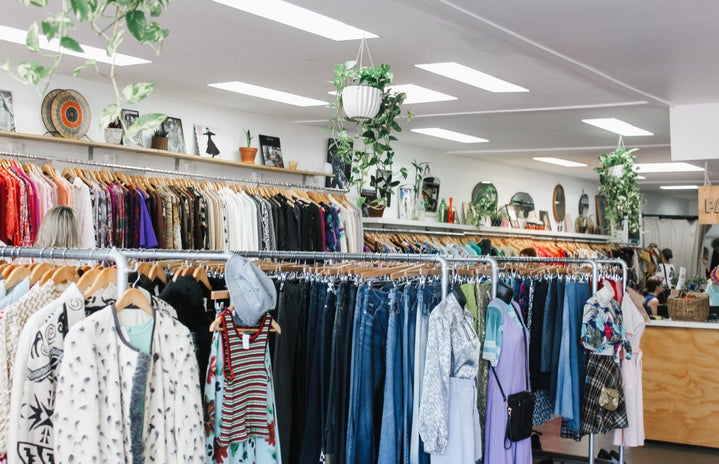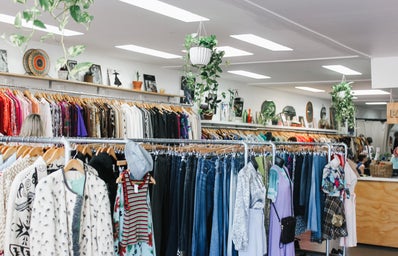As consumers, we are obsessed with buying the latest trends and constantly stocking our wardrobe with piles of clothes that realistically, we probably will only wear once. That is a byproduct of having been consumed into the world of fast fashion. Fast fashion is cheap, trendy clothing that is sampled ideas from looks on the catwalk or on celebrities, that is then turned into garments sold at high fashion stores for regular consumers. Stores like H&M, Forever 21, Zara, ASOS, Urban Outfitters are considered fast fashion outlets.
Fast fashion has a lot of negative impacts on the environment, especially the amount of waste it produces. According to a recent study conducted by Greenpeace, 80 billion pieces of clothing are produced worldwide, and 3 out of 4 of those pieces will end up in landfill. The numbers are also extremely high when it comes to water pollution and consumption. Just one pair of jeans requires 7,000 liters of water to produce, and 2 billion pairs are manufactured every year. In addition, 2,700 liters of water are used to make just one t-shirt. And finally, the people who make these clothes are being paid almost 39 cents to make garments that are being sold in fast fashion stores for, sometimes, $100. They are working in highly dangerous facilities, with no workers rights, for long, grueling hours.
This is where sustainable fashion comes in. Now, there is no such thing as completely “eco-friendly” materials. Every fabric does have some negative impact, varying on how big or small. But, there are sustainable fashion brands and sustainable ways that you can help the environment, even if it’s just a little.
Reformation
They offer on trend pieces, based out of Los Angeles, and create products only from sustainable and upcycled materials in a fair-wage environment.
Everlane
A brand that believes it’s customers deserve to know what their products cost to make and where they were made. Based out of California, they build strong relationships with factory owners to maintain ethical production for each product sold in their store.
Pact
Based out of Colorado, this brand is dedicated to growing and harvesting organic cotton for their clothing, and a clean and responsible process all the way through.
ThredUp/Depop
These two websites go hand in hand, both for those people who don’t want to thrift in stores and want more of a refined selection, or for those who are just online buyers in general. Labeled as thrifting online, you can be able to shop sustainably from the comfort of your couch.
Thrift Stores/Thrifting
It’s easy to just go on down to Goodwill, Salvation Army, or whatever thrift/vintage store is in your area. Thrift stores can always have trendy pieces, because trends always come full circle. And that piece that you’re looking for at Unif, can just as well be at a thrift store for a much cheaper price.



